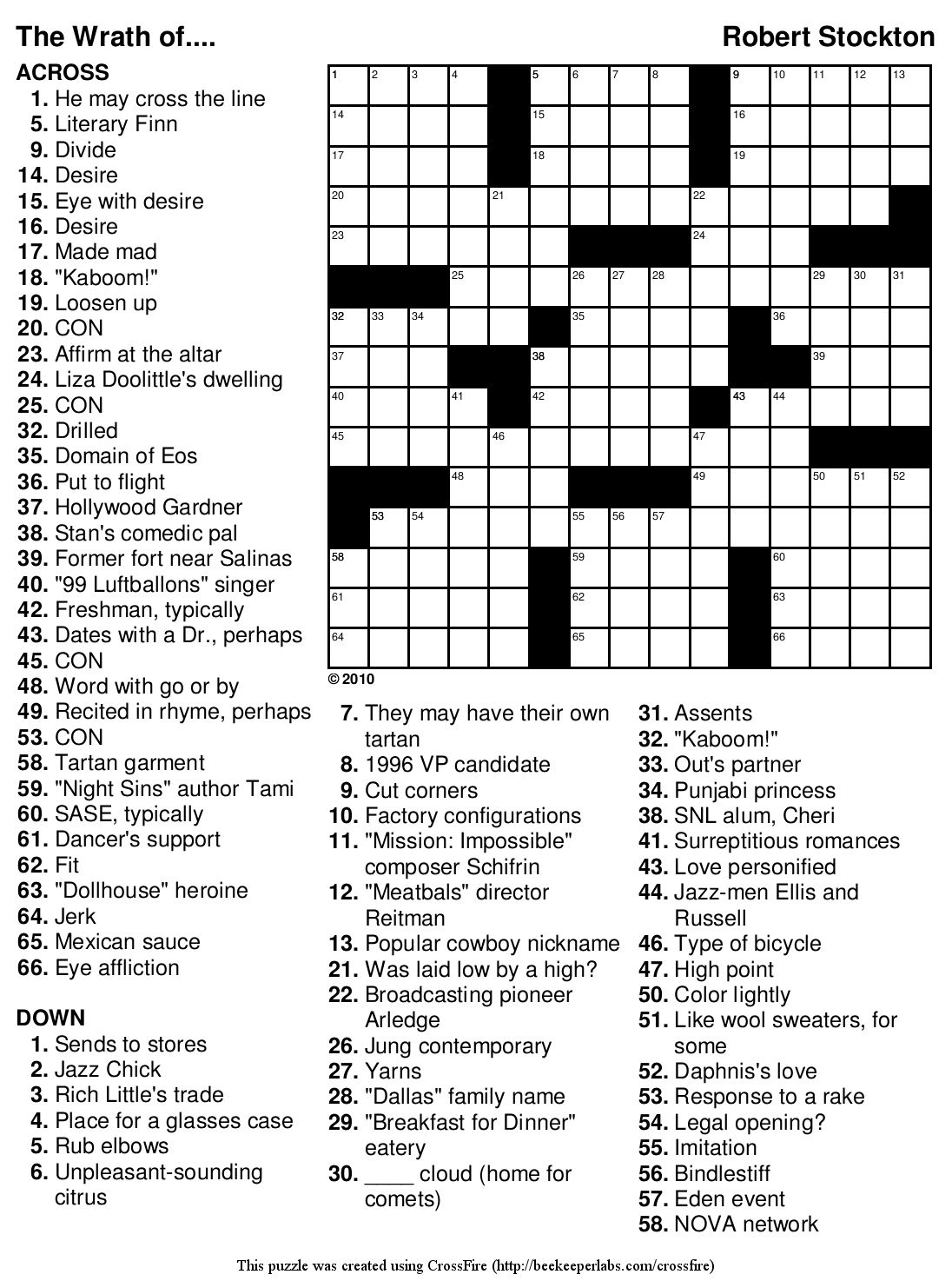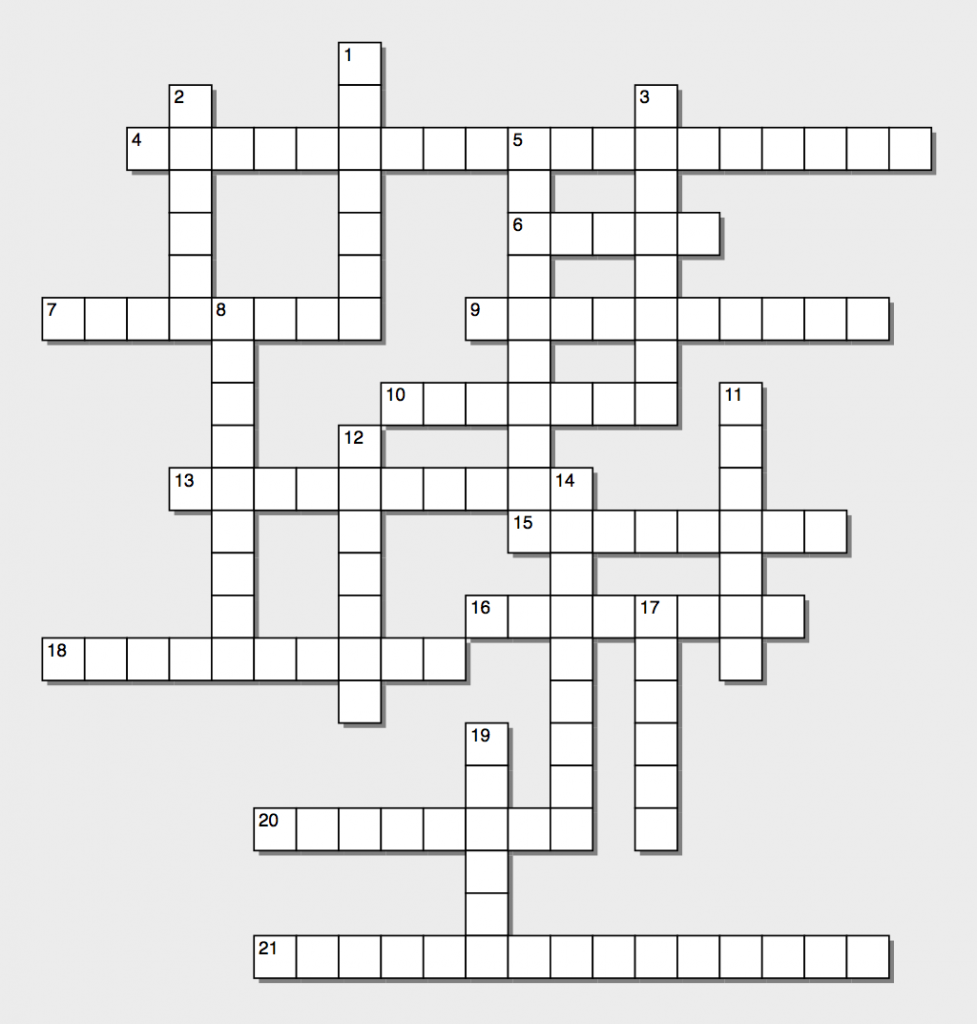Crossword Puzzles For Beginners: A Fun And Easy Guide To Get You Started!
So you've heard about crossword puzzles, and now you're wondering if they're right for you. Well, let me tell you, buddy, this isn't just a game—it's a mental workout that'll keep your brain sharp as a tack. Whether you're looking to improve vocabulary, challenge yourself, or simply pass the time, crossword puzzles for beginners are a fantastic place to start.
Now, I know what you're thinking: "Aren't crosswords just for old-school folks with tons of free time?" Nope, not at all! They're actually super fun, and once you get the hang of it, you'll be hooked. Trust me on this one. We're about to dive deep into the world of crosswords, breaking it down step-by-step so even total newbies can jump right in.
In this article, we’ll cover everything from the basics of crossword puzzles for beginners to some insider tips and tricks that’ll make you feel like a pro in no time. So grab a pen (or pencil), and let’s get started!
Read also:Excon Charged With Murdering Mom And Brother Just Days After Leaving Prison
Table of Contents
- What Are Crossword Puzzles?
- Why Are Crosswords Good for Beginners?
- Basic Terms You Should Know
- Types of Crossword Puzzles
- How to Solve Crosswords for Beginners
- Tips for Crossword Newbies
- Common Mistakes to Avoid
- Best Resources for Learning Crosswords
- Crossword Puzzles for Beginners FAQ
- Conclusion
What Are Crossword Puzzles?
Alright, let’s start with the basics. Crossword puzzles are these grid-based word games where you fill in blank squares with letters to form words or phrases. Each square corresponds to a clue, and the answers run horizontally (across) and vertically (down). It’s like a treasure hunt for words, except you don’t have to leave your couch.
And here’s the best part—there’s no age limit! Whether you're 8 or 80, crossword puzzles can be enjoyed by anyone who loves a good challenge. Plus, they come in all sorts of difficulties, so there’s something for everyone. For beginners, though, we recommend starting small—like mini puzzles or those designed specifically for new solvers.
Why Do People Love Crosswords?
Let’s face it—people love crosswords because they’re addictive. Once you solve one clue, you just wanna keep going. And let’s not forget the mental benefits. Solving crosswords can improve memory, vocabulary, and even problem-solving skills. Who wouldn’t want that?
Why Are Crosswords Good for Beginners?
Here’s the deal: crossword puzzles aren’t as intimidating as they seem. In fact, they’re perfect for beginners because they come in different levels of difficulty. You can start with easy ones and work your way up as you gain confidence. Plus, there are tons of resources out there to help you along the way.
For example, beginner-friendly crosswords often use simpler vocabulary and shorter clues, making them less overwhelming. And hey, if you get stuck, there’s no shame in using a hint or two. The goal is to have fun and learn, not to stress over every single answer.
What Makes Crosswords Beginner-Friendly?
Here’s a quick rundown:
Read also:Exploring The Remarkable World Of Ts Luana A Digital Content Creator Extraordinaire
- Shorter grids that are easier to navigate
- Clues that focus on common words and phrases
- Plenty of opportunities to practice without feeling overwhelmed
Basic Terms You Should Know
Before you dive headfirst into the world of crosswords, it’s important to familiarize yourself with some key terms. Don’t worry—it’s not as complicated as it sounds. Let’s break it down:
- Grid: The layout of squares where you fill in your answers.
- Clues: The hints provided for each word or phrase.
- Across: Horizontal answers.
- Down: Vertical answers.
- Black Squares: These are the empty spaces that separate words.
- White Squares: Where you write your answers.
See? Not so bad, right? Now that you know the lingo, you’re ready to tackle your first puzzle.
Types of Crossword Puzzles
Not all crossword puzzles are created equal. There are different types to suit every skill level and interest. Here are a few you should know about:
1. American Crosswords
These are the classic puzzles you probably think of when you hear “crossword.” They feature large grids with lots of white squares and relatively few black ones. The clues are usually straightforward, making them great for beginners.
2. Cryptic Crosswords
Now these are a bit trickier. Cryptic crosswords use wordplay and clever clues to challenge even the most experienced solvers. If you’re just starting out, you might want to save these for later.
3. Mini Crosswords
Perfect for beginners, mini crosswords are smaller grids with simpler clues. They’re a great way to ease into the game without feeling overwhelmed.
How to Solve Crosswords for Beginners
Alright, let’s talk strategy. Solving crossword puzzles isn’t just about guessing answers—it’s about using logic and deduction. Here’s a step-by-step guide to get you started:
Step 1: Start with the easiest clues. Look for ones that involve common words or phrases. For example, “Capital of France” is a no-brainer.
Step 2: Fill in the answers you’re sure about. This will give you a foundation to build on as you tackle the harder clues.
Step 3: Use the letters you’ve already filled in to help solve other clues. For instance, if you’ve got “P _ _” for a three-letter word starting with “P,” you might be able to narrow it down based on the intersecting letters.
Step 4: Don’t be afraid to take breaks. Sometimes stepping away for a few minutes can help you see things from a fresh perspective.
Pro Tip:
Always use a pencil! That way, you can erase mistakes without messing up your grid.
Tips for Crossword Newbies
Now that you’ve got the basics down, here are a few extra tips to help you succeed:
- Start Small: Begin with mini puzzles or those labeled “easy” to build confidence.
- Learn Common Clues: Some clues pop up all the time, like “Tree Top” (A: LEAF) or “Bakery Treat” (A: BAGEL). Get to know them!
- Use Resources: There’s no shame in looking up a word or two if you’re stuck. Just don’t rely on them too much!
- Practice Regularly: The more you solve, the better you’ll get. Aim for at least a few puzzles a week.
Common Mistakes to Avoid
Even the best solvers make mistakes sometimes. Here are a few to watch out for:
- Rushing: Take your time! Rushing can lead to careless errors.
- Ignoring Context: Always consider the surrounding letters when solving a clue.
- Overthinking: Sometimes the simplest answer is the right one. Don’t overcomplicate things.
Best Resources for Learning Crosswords
There are tons of great resources out there to help you improve your crossword skills. Here are a few worth checking out:
1. Online Puzzle Websites
Sites like The New York Times and USA Today offer daily puzzles that cater to all skill levels. Plus, many of them include hints and solutions if you get stuck.
2. Crossword Apps
Can’t get enough puzzles? There are plenty of apps that let you solve on the go. Some even offer tutorials and tips for beginners.
3. Crossword Books
For the old-school crowd, there’s nothing quite like a good old-fashioned crossword book. You can find them at most bookstores or online.
Crossword Puzzles for Beginners FAQ
Q: Do I need to know everything to solve crosswords?
A: Nope! Crosswords are designed to challenge you, not stump you completely. Even seasoned solvers rely on hints and resources from time to time.
Q: How long does it take to get good at crosswords?
A: That depends on how much you practice. Some people see improvement within a few weeks, while others take longer. The key is consistency.
Q: Can kids do crosswords too?
A: Absolutely! There are plenty of kid-friendly puzzles available that focus on simpler vocabulary and concepts.
Conclusion
There you have it—everything you need to know to get started with crossword puzzles for beginners. Whether you’re looking to sharpen your mind, expand your vocabulary, or just have fun, crosswords are a great way to do it.
Remember, the key to success is practice. The more you solve, the better you’ll get. So don’t be afraid to dive in and give it a try. Who knows? You might just discover a new hobby that’ll stick with you for life.
And hey, if you enjoyed this article, don’t forget to share it with your friends. Trust me, they’ll thank you later. Happy solving, my friend!


